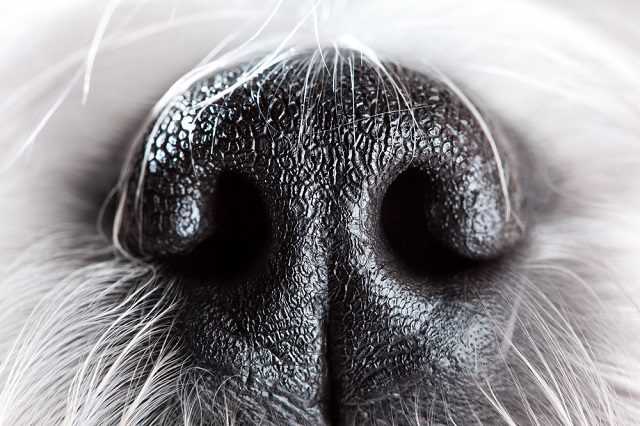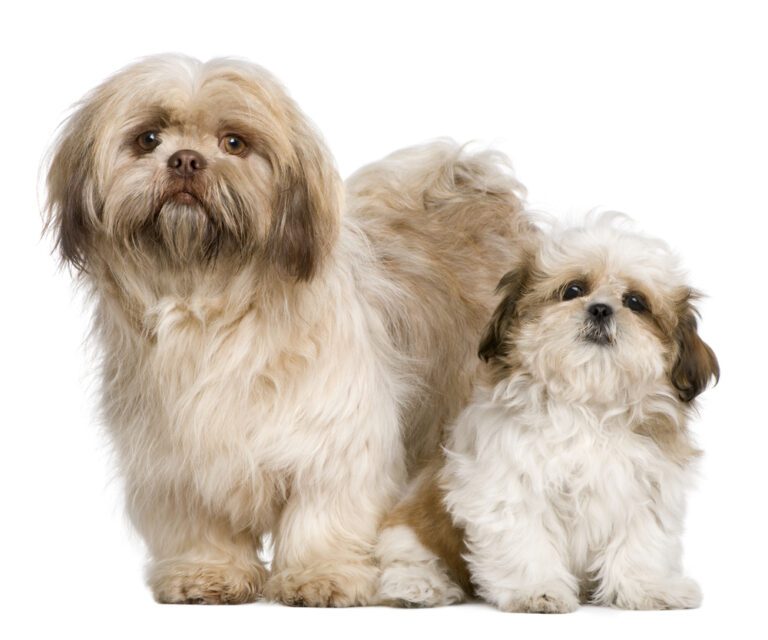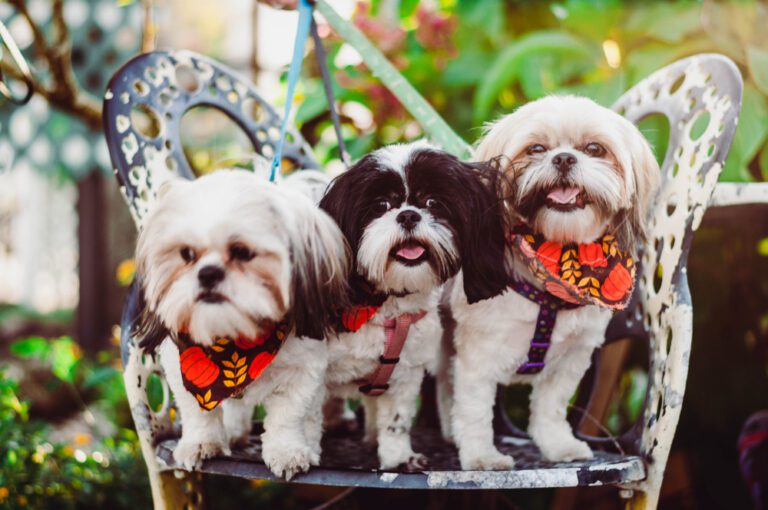Shih Tzu Breathing Problems: A Comprehensive Guide
Shih Tzus are special for many reasons, but one thing that stands out is their squished cute noses. While those noses make them look adorable, they also make breathing tricky for these furry friends. Shih Tzus are like the athletes of the dog world who have to play the game with a stuffy nose – it’s not always easy!
In this article, we’re diving into the world of Shih Tzus to explore why they sometimes huff and puff more than other dogs and what we can do to help them catch their breath.
Whether you’re a Shih Tzu owner, thinking of getting one, or love learning about dogs, this guide is packed with helpful tips and information to keep these charming companions happy and healthy.
Common Breathing Problems in Shih Tzus
Let’s dive into these pups’ most common breathing problems and understand them better.
1. Brachycephalic Obstructive Airway Syndrome (BOAS)
Imagine breathing through a straw; that’s what BOAS feels like for a Shih Tzu. Their short noses and flat faces mean they don’t have as much space for air to flow freely. Signs that your furry friend might struggle include loud breathing, snoring, or getting tired quickly during playtime. They’re always trying to catch their breath after running just a little.
2. Stenotic Nares
Stenotic Nares are a fancy way of saying that a Shih Tzu’s nostrils are too narrow. It’s like having a stuffy nose all the time. If you notice your pup snuffling more than usual or having difficulty breathing when they get excited, their tiny nostrils might be the reason.
3. Elongated Soft Palate
The soft palate is the soft part at the back of the mouth, and in Shih Tzus, it can sometimes be too long and block the airway. This can make it hard for them to breathe, especially when they’re excited or exercising. If your Shih Tzu is making choking sounds or coughs like they have something stuck in their throat, it might be their elongated soft palate acting up.
4. Tracheal Collapse
The trachea, or windpipe, is like the tube that carries air to the lungs. In some Shih Tzus, this tube can get weak and start to collapse, making it hard for them to breathe. A telltale sign is a honking cough, especially when your dog is excited or pulling on their collar.
5. Laryngeal Collapse
This problem is similar to tracheal collapse but happens in the larynx or voice box. It’s a severe issue that usually comes after a long time of having other breathing problems. If your Shih Tzu sounds raspy or has difficulty breathing, it’s time to see the vet.
6. Heat Stress
Shih Tzus can overheat pretty quickly because of their breathing troubles. On hot days or after many playtimes, they can get too warm and have difficulty cooling down. Panting, tiredness, or not wanting to play are signs they might get too hot.
Diagnosis and Treatment for Shih Tzu Breathing Problems
When our Shih Tzu friends start showing signs of breathing trouble, knowing what steps to take to help them feel better is essential. Let’s learn about how vets figure out what’s wrong and the different ways to make breathing easier for these pups.
1. Veterinary Diagnosis
If you notice your Shih Tzu struggling to breathe, the first step is visiting the vet. Vets are like detectives for pets. They use special tests to look inside and find out what’s causing the trouble. These tests might include X-rays, which let the vet see the shape of the airways, or a CT scan, which gives a super detailed picture of the nose and throat. The vet might also look directly down the throat with a tiny camera. It’s all about getting a clear picture of what’s happening inside.
2. Treatment Options
Once the vet knows what’s wrong, they can suggest the best way to help. Sometimes, surgery is needed to fix narrow nostrils or a long soft palate. It sounds scary, but these surgeries can make a massive difference in helping a Shih Tzu breathe easier. There might be ways to manage the problem without surgery for less severe cases, like keeping your pup cool and calm to avoid breathing stress.
3. Post-Treatment Care
After treatment, your Shih Tzu will need some special care to help them recover. This might mean keeping them calm and quiet so they don’t strain their breathing while they heal. The vet will give you instructions on caring for your pup at home and schedule follow-up visits to check their progress.
Preventive Measures and Daily Care
Caring for a Shih Tzu means more than just giving them love and treats. It’s about keeping them healthy and happy, especially regarding their unique breathing needs. Let’s explore how we can make every day the best day for our Shih Tzu pals with some smart care and prevention tips.
1. Environmental Management
Creating a safe and comfy space for your Shih Tzu can make a big difference. Since they can overheat quickly, it’s important to keep their living area cool and well-ventilated. Think of it as setting up the perfect chill-out zone where they can relax without getting too warm.
2. Diet and Exercise
Feeding your Shih Tzu the right food and ensuring they exercise properly is like hitting the health jackpot. A balanced diet keeps them from getting overweight, which is essential because extra pounds can worsen breathing problems. And when it comes to playtime, go for shorter, fun activities that don’t leave them puffing and panting.
3. Heat Management
On hot days, Shih Tzus needs extra care to stay cool. Always have fresh water ready, and pick the coolest times of the day for walks. Sometimes, a little kiddie pool or a damp towel can help them beat the heat. It’s all about keeping them as cool as a cucumber when the temperatures soar.
Living with a Shih Tzu with Breathing Problems
Having a Shih Tzu with breathing problems might sound challenging, but with love and the right care, you can make their life joyful and comfortable. Let’s look at how to adapt your home and routine to help your little buddy breathe easier.
1. Adapting Your Home
Making your home a haven for a Shih Tzu with breathing difficulties means keeping the air clean and fresh. Use air purifiers to reduce dust and allergens that can make breathing tougher. Also, arranging a cozy, stress-free spot where they can rest without getting too hot or cold can make a big difference in their comfort.
2. Routine Health Checks
Regular visits to the vet are key to keeping your Shih Tzu healthy. These check-ups help catch any new or worsening breathing issues early. Think of it as a regular car check-up for your pup. It’s all about ensuring everything is running smoothly and fixing any small problems before they become big.
3. Quality of Life Considerations
Keeping your Shih Tzu happy and engaged is as important as managing their health. Even with breathing problems, they can enjoy gentle play and cuddles. Find activities that don’t overexert but make them feel part of the family fun. Always keep an eye on them to make sure they’re comfortable and not struggling to breathe after the activity.
Conclusion
Caring for a Shih Tzu with breathing problems is a journey of love, learning, and cuddles. Understanding their needs and being proactive in their care shows immense love and empathy. Regular vet check-ups, monitoring their breathing, and adjusting their lifestyle to keep them comfortable are crucial steps in ensuring they lead a happy, fulfilling life. With the proper attention, your Shih Tzu can enjoy the playfulness and affection they’re known for, making every moment together precious.
Remember, you’re not navigating this path alone; a community of vets and fellow Shih Tzu lovers are always there to support you. Here’s to creating happy memories and enjoying the special bond with your beloved furry family member, breathing easy and cherishing every day together.
FAQs
How do I know if my Shih Tzu is having a breathing emergency?
If your Shih Tzu struggles to breathe, looks anxious, or their gums turn blue or pale, it’s time to act fast. These signs mean they’re not getting enough air. Stay calm and get them to the vet immediately. It’s always better to be safe and get them checked out.
Can Shih Tzus with breathing problems live a normal life?
Yes, with the right care and attention, Shih Tzus with breathing issues can enjoy a full and happy life. It’s all about managing their environment, keeping them at a healthy weight, and regular check-ups. Love and patience go a long way in helping them thrive.
What exercises are safe for my Shih Tzu?
Think of fun, light activities that won’t make your Shih Tzu overheat or pant too hard. Short walks in cool weather, gentle play sessions indoors, and puzzle toys that stimulate their mind without too much physical exertion are great choices. Always watch for signs of tiredness or difficulty breathing.
How can I help my Shih Tzu during hot weather?
Keeping them cool is key. Make sure they have a cool, shady spot to rest and plenty of fresh water, and avoid walking them during the hottest part of the day. Some pet parents find that a cooling mat or a small fan can also help keep their Shih Tzu comfortable.
Can diet affect my Shih Tzu’s breathing problems?
Absolutely. A healthy diet helps keep your Shih Tzu at an ideal weight, which is crucial because extra pounds can put more strain on their breathing. Talk to your vet about the best diet plan for your pup to support their overall health and breathing.







